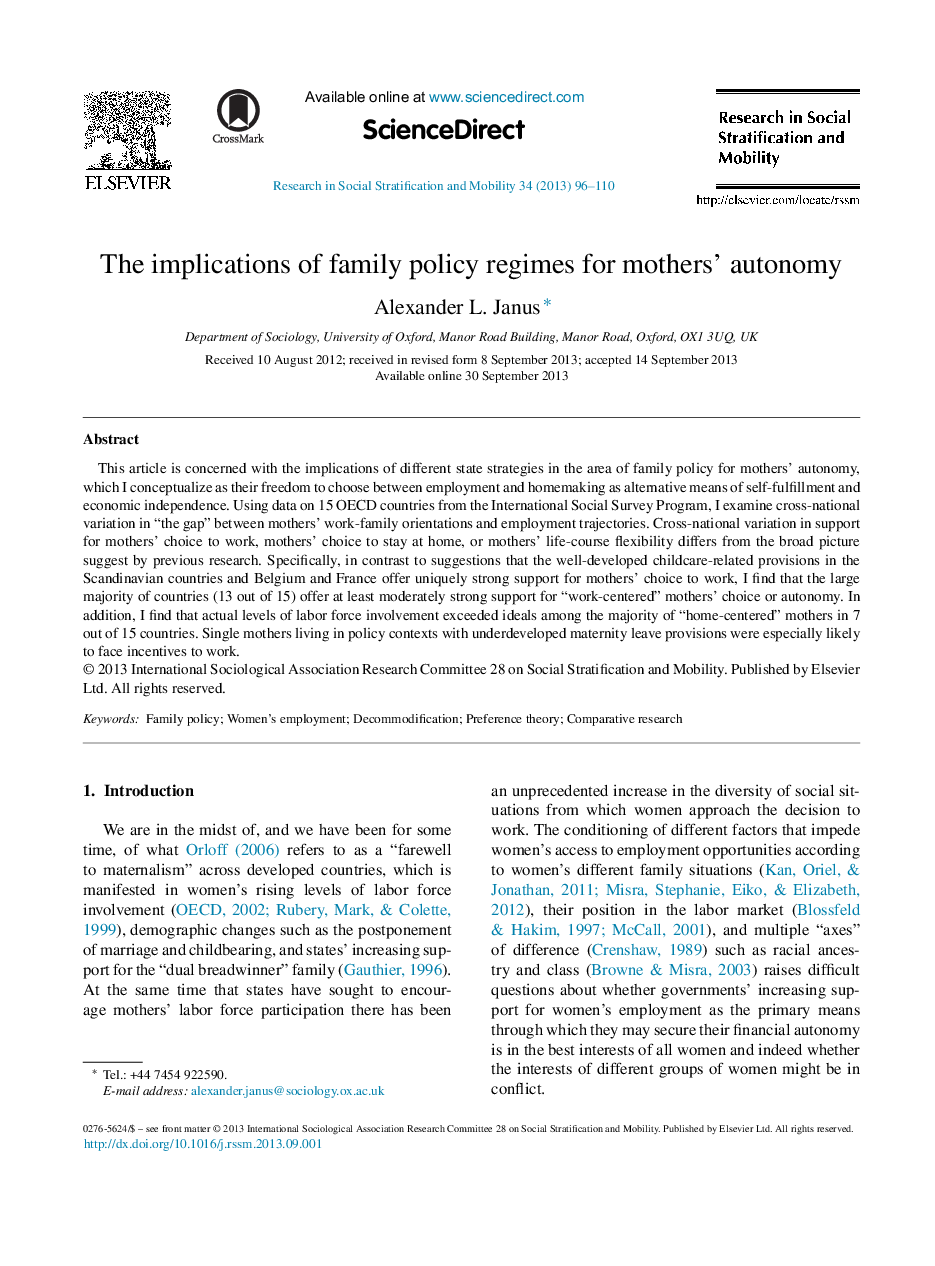| کد مقاله | کد نشریه | سال انتشار | مقاله انگلیسی | نسخه تمام متن |
|---|---|---|---|---|
| 999650 | 1481577 | 2013 | 15 صفحه PDF | دانلود رایگان |

• My findings partly confirm arguments concerning women's agency and heterogeneity in women's subjective orientations.
• There are substantial gaps between mothers’ work-family orientations and employment behavior in many countries.
• My findings suggest a typology of family policy regimes that differs from the broad picture suggested by previous research.
• I do not find evidence of any systematic relationship cross-nationally between support for different women's choices.
• Single mothers living in certain policy contexts are especially likely to face incentives to work.
This article is concerned with the implications of different state strategies in the area of family policy for mothers’ autonomy, which I conceptualize as their freedom to choose between employment and homemaking as alternative means of self-fulfillment and economic independence. Using data on 15 OECD countries from the International Social Survey Program, I examine cross-national variation in “the gap” between mothers’ work-family orientations and employment trajectories. Cross-national variation in support for mothers’ choice to work, mothers’ choice to stay at home, or mothers’ life-course flexibility differs from the broad picture suggest by previous research. Specifically, in contrast to suggestions that the well-developed childcare-related provisions in the Scandinavian countries and Belgium and France offer uniquely strong support for mothers’ choice to work, I find that the large majority of countries (13 out of 15) offer at least moderately strong support for “work-centered” mothers’ choice or autonomy. In addition, I find that actual levels of labor force involvement exceeded ideals among the majority of “home-centered” mothers in 7 out of 15 countries. Single mothers living in policy contexts with underdeveloped maternity leave provisions were especially likely to face incentives to work.
Journal: Research in Social Stratification and Mobility - Volume 34, December 2013, Pages 96–110